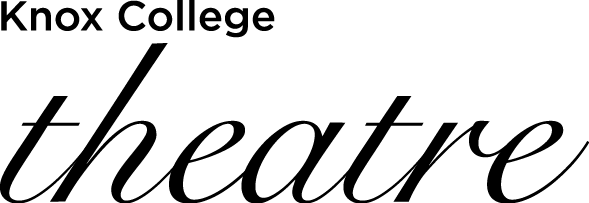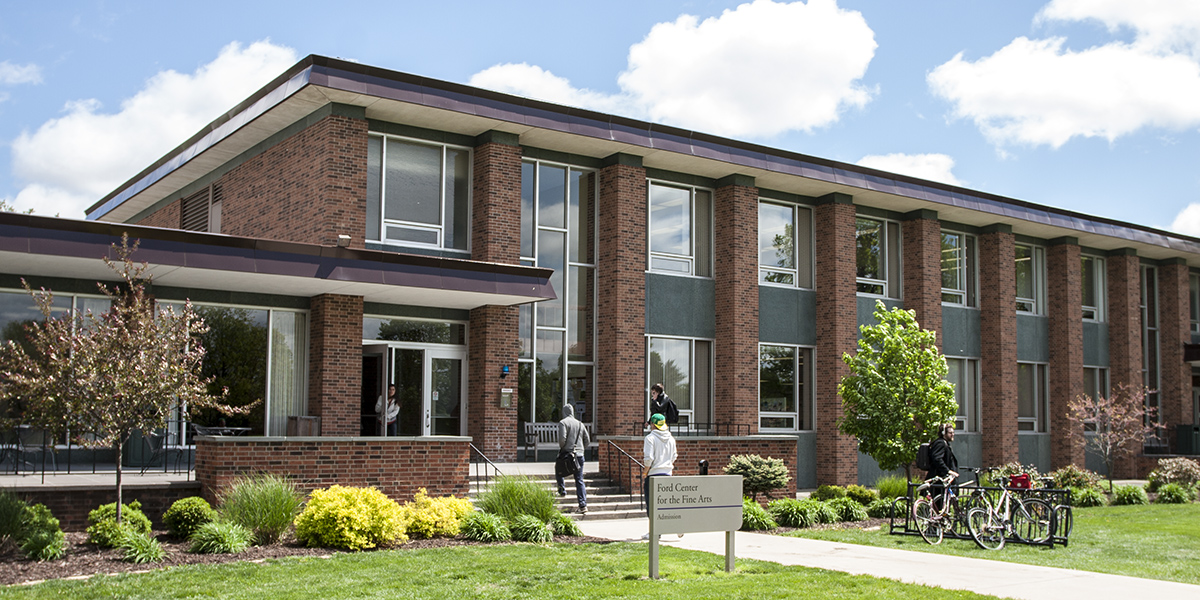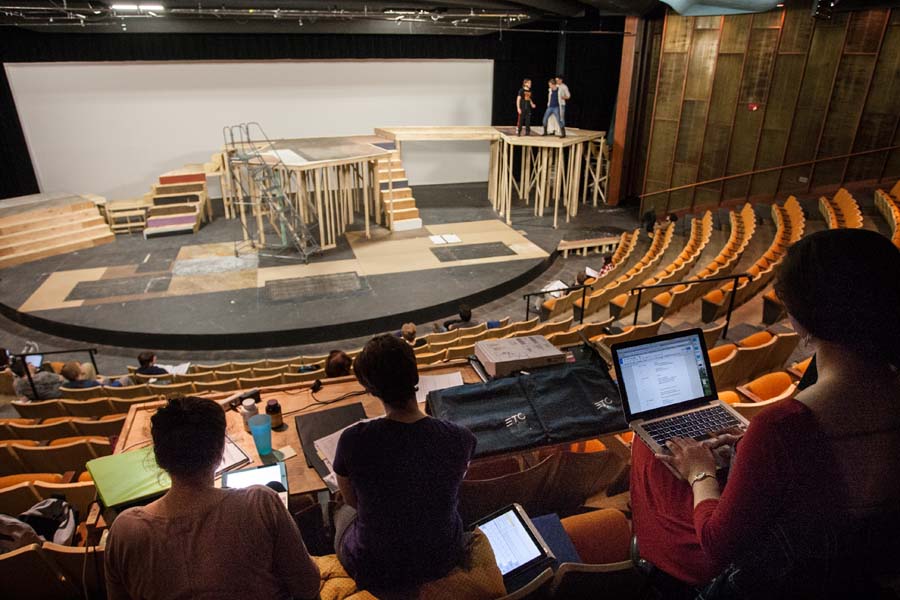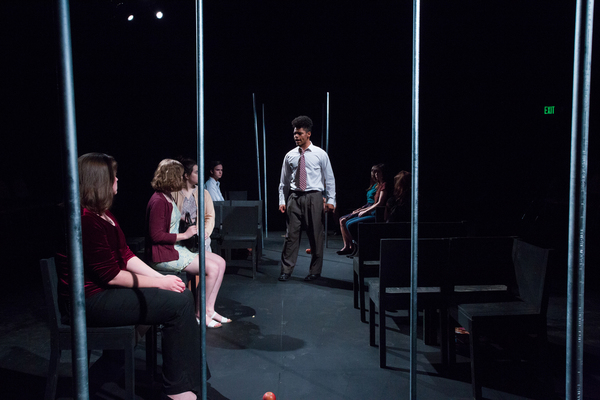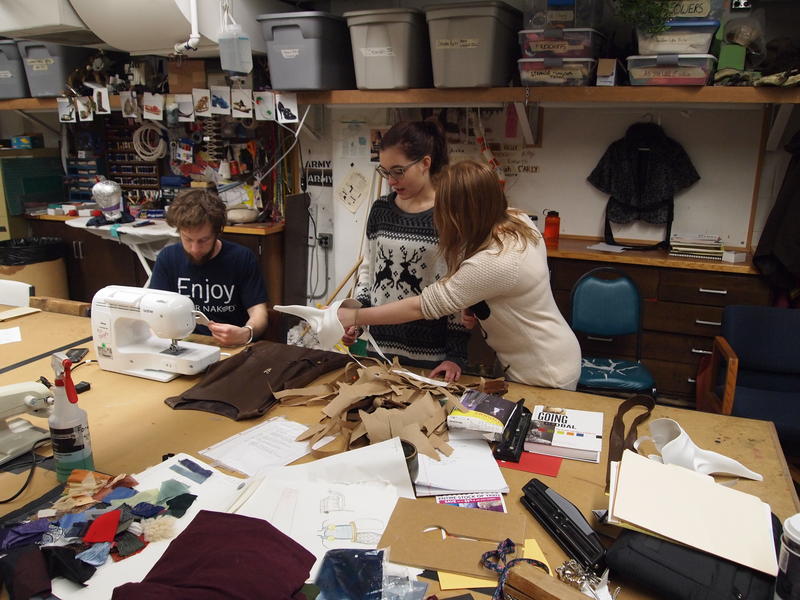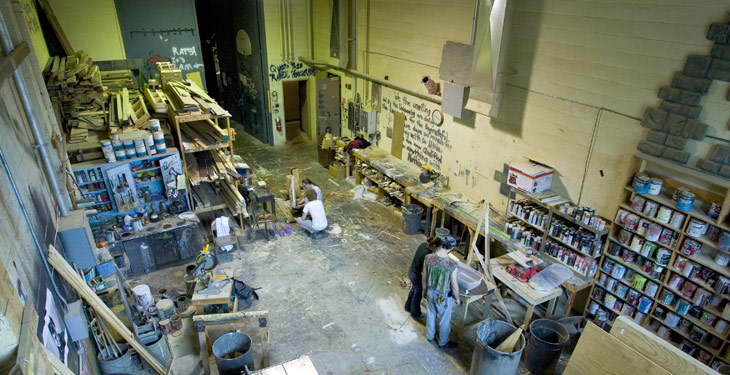About Us
The Department of Theatre seeks to create a supportive, collaborative environment in which students can put into practice what they learn in the classroom, the rehearsal studio, and the design studio. All of the departments curricular and co-curricular experiences are grounded in the belief that the rigorous study and practice of theatre provide students with a unique and vital means of investigating and making significant discoveries about the world and their own place in it.
How We Work
Our Approach
?
Where We Work
Theatre & Classroom Facilities
?
Why We Work
Learning Outcomes
?
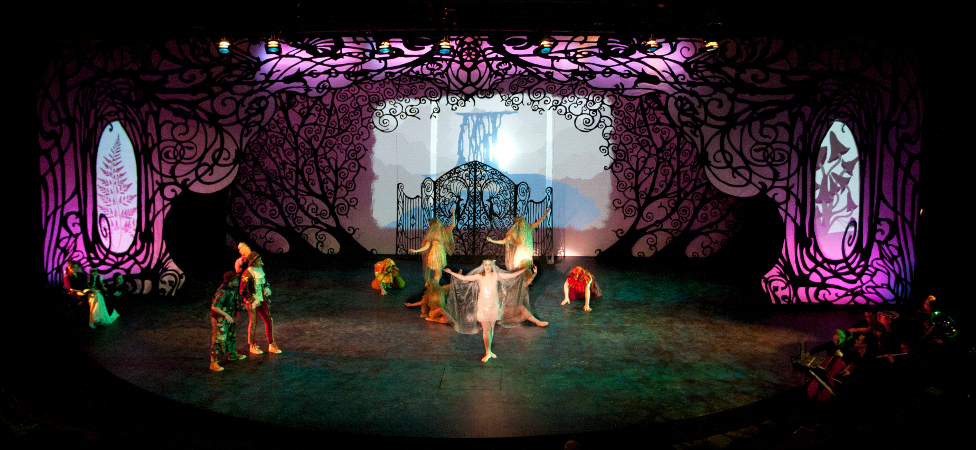
How We Work
We give you the freedom to discover and choose your own path.
We want you to explore your interests and hone your skills inside and outside of the classroom. When Maddie Mondeaux ’15 decided to adapt Samuel Richardson’s Pamela for the stage, she was able to pursue an honors project to write and direct her own version of the 18th century novel. We celebrate your independence, but we’re always nearby to offer guidance and support.
We value practical experience.
In our black box space, Studio Theatre, several plays each term are directed, designed, and brought to life by students. One example is Dakota Stipp ’17, who not only designed soundscapes and created original effects for mainstage productions, but also composed the score for a student directed full-length production—and then went to Yale University School of Drama for an MFA in Sound Design.
We don’t make you wait.
Get involved right away. You’ll have plenty of shows to choose from with one faculty directed mainstage, two student directed/designed productions, New Plays Workshop stage readings, and a few Bare-Stage plays every term. You won’t find many places with the number of opportunities every year that our students have to do hands-on work in theatre, where they’re the ones making the creative decisions. And we have no graduate students getting all the good roles and design opportunities (or teaching your classes). At Knox you and your work are our only focus.
We work hard.
We’re the only undergraduate program in the country to offer Repertory Theatre Term, an intensive immersion experience during which a company of students devote all three credits of winter term to studying and creating theatre by collaborating with faculty to produce two full-length plays performed in repertory. Rep Term students find that the resume credit and experience help them to successfully obtain professional internships. Joel Willison ’21 recently was a technician at the NY Film and Stage Festival where he rapidly rose in the ranks due to abilities he developed in Rep Term.
We develop new plays.
Student playwrights workshop their scripts once a term through New Plays Workshop. Additionally, every three years, the New Plays Festival presents staged readings and workshops of new plays by the Knox community. In Studio Theatre, several student-written one acts and full-length plays are produced each year, and Harbach Theatre is home to several world premieres including Mosque Alert by Jamil Khoury, Artistic Director at Silk Road Theatre, Chicago.
We think beyond the stage.
Through the liberal arts study of theatre, our students cultivate valuable skills such as communication, aesthetic understanding, intuitive and analytical thinking, and creative problem solving. We use theatre as a way to investigate the world and our place in it. For example, Alyssa Gill ’14 used physical theatre to examine the nature of evil in her honors project, “Performing Evil: A Look at Meaning and Creation through Devising the Original Play The Devil is Bored (knox.edu).”
Where We Work
Housed in the Ford Center for Fine Arts, our facilities are a labyrinth of spaces. In addition to our theatres and workshops, it’s not uncommon to find students making and performing theatre in stairwells, lobbies, lawns, and just about anywhere else.
Ford Center for the Fine Arts
Harbach Theatre
Harbach Theatre seats up to 500 people in a modified apron thrust or proscenium stage. Exceptional acoustics and sight lines highlight performances on the 72-foot stage with full white and black cycloramas. Harbach is often the venue for the three faculty productions each year.
Studio Theatre, a 40′ x 60′ black-box venue, is a laboratory for the experimental work of Knox students. With an overhead suspension grid, fully equipped sound and lighting systems, moveable audience risers, and five entrance/exit locations, Studio allows students to create in a space with endless possibilities.
Dutchman in Studio Theatre
The Costume Studio
The Costume Studio boasts a collection of more than 40,000 hanging pieces spanning numerous styles and historical periods. Our well-equipped and spacious workshop is equipped with 10 sewing units, draping dress forms, cutting tables, laundry and pressing facilities, and an exclusive area for textile manipulation.
The Scene Shop is a fully functional carpentry and painting studio that covers more than 1200 square feet. Equipped with a full range of hand, power, and pneumatic tools, it is located adjacent to both the Harbach and Studio Theatres. With a 24 foot high ceiling, large items are transferred with ease into either venue.
The Scene Shop
Why We Work
The study of theatre in a liberal arts context cultivates many widely applicable capacities such as communication skills, aesthetic understanding, creative problem-solving, and intuitive as well as analytical thinking. Knox offers a broad range of courses at introductory and advanced levels in performance, design, and literature and history. Those curricular offerings complement and are integrated with a variety of co-curricular opportunities for students to act in, write, direct, design and create theatre.
Students who major or minor in theatre emerge well prepared for advanced study in performance, directing, design, and theatre studies. Those students who do not pursue careers in theatre gain at Knox a wealth of experience beneficial to professional life in many other areas, including business, law, and education, among many diverse fields.
Copyright © 2024, All Rights Reserved • Knox College Department of Theatre • 2 East South Street • Galesburg, IL 61401
